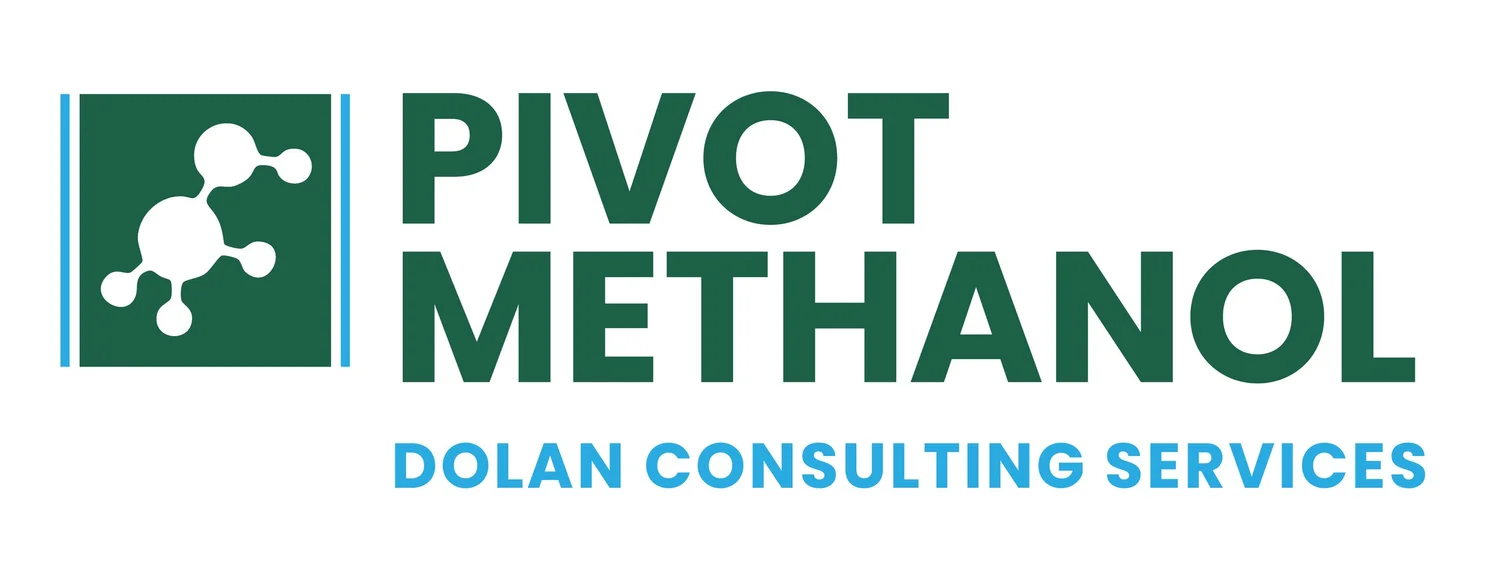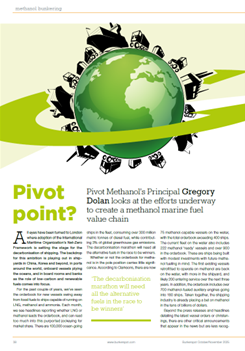Pivot Point? - Bunkerspot - Nov/Dec 2025
The November/December issue of Bunkerspot Magazine features an article I wrote on creating a methanol marine fuel value chain. The article is linked here and can be found on www.ship.energy, and begins with this:
All eyes have been turned to London where adoption of the International Maritime Organization’s Net-Zero Framework is setting the stage for the decarbonization of shipping. The backdrop for this ambition is playing out in shipyards in China, Korea and beyond, in ports around the world, onboard vessels plying the oceans, and in board rooms and banks as the role of low-carbon and renewable fuels comes into focus.
For the past couple of years, we’ve seen the orderbook for new vessels swing away from fossil fuels to ships capable of running on LNG, methanol and ammonia. Each month, we see headlines reporting whether LNG or methanol leads the orderbook, and can read too much into this purported jockeying for market share. There are 100,000 ocean-going ships in the fleet, consuming over 300 million metric tons of diesel fuel, while contributing 3% of global greenhouse gas emissions. The decarbonization marathon will need all the alternative fuels in the race to be winners.
Whether or not the orderbook for methanol is in the pole position carries little significance. According to Clarksons, there are now 75 methanol-capable vessels on the water, with the total orderbook exceeding 400 ships. The current fleet on the water also includes 222 methanol “ready” vessels and over 900 in the orderbook, ships being built with modest investments with future methanol fueling in mind. The first existing vessels retrofitted to operate on methanol are back on the water, with more in the shipyard, and likely 200 entering service over the next three years. In addition, the orderbook includes over 700 methanol-fueled auxiliary engines going into 180 ships. Taken together, the shipping industry is already placing a bet on methanol in the tens of billions of dollars.
Beyond the press releases and headlines detailing the latest vessel orders or christenings, there are other critical announcements that appear in the news but are less recognized for their significance unless you step back.
As hundreds of containers, tankers, cruise ships, car carriers, bulkers, and offshore vessels hit the water over the next three to four years, there needs to be a fuel supply and bunkering industry to support them. This supply chain is now well along and growing rapidly.

